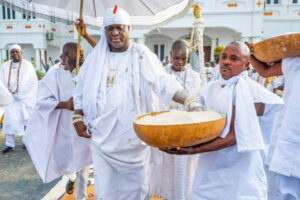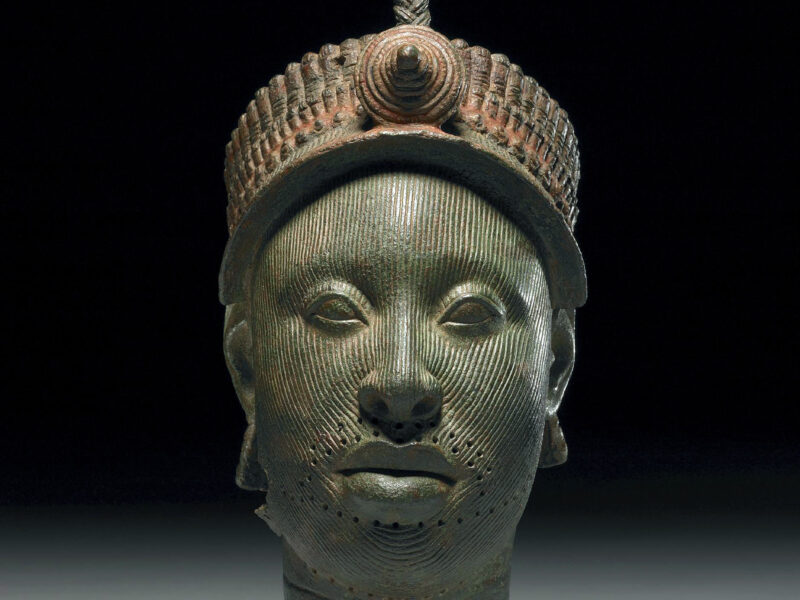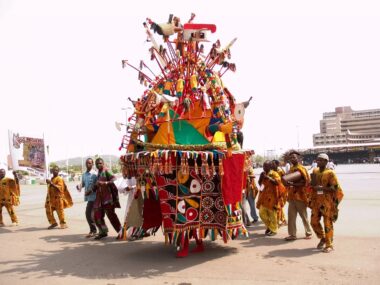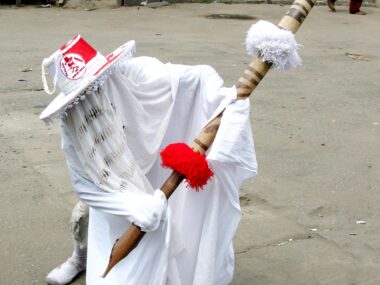Ile Ife, the ancient city located in present-day southwestern Nigeria, stands as the cradle of Yoruba civilization and culture. At the heart of this vibrant community lies a complex and deeply ingrained system of traditional religion and beliefs.
These spiritual practices are rooted in Yoruba cosmology, which encompasses a rich tapestry of deities, rituals, and worldviews. In this essay, we delve into the intricacies of traditional religion in Ile Ife, examining its key components, significance, and enduring influence on Yoruba society.
Yoruba Cosmology
Central to the traditional religion of Ile Ife is the cosmological framework that shapes the Yoruba worldview. According to Yoruba mythology, the universe was created by the supreme deity Olodumare, who delegated the task of shaping the world to his children, the Orishas. These Orishas, divine entities representing various aspects of nature and human experience, play a pivotal role in Yoruba religious practices.
Among the pantheon of Orishas, prominent figures include Olorun, the sky god; Olokun, the deity of the sea; Ogun, the god of iron and war; and Osun, the goddess of rivers and fertility. Each Orisha possesses distinct characteristics and attributes, and devotees invoke their aid through prayers, offerings, and rituals.
Rituals and Offerings

Rituals form an integral part of traditional religious practices in Ile Ife, serving as a means of communing with the divine and maintaining harmony with the spiritual realm. These rituals encompass a wide range of activities, from elaborate ceremonies to daily observances conducted in homes and shrines.
Offerings play a central role in Yoruba rituals, serving as tokens of gratitude and reverence to the Orishas. Offerings can include food, drink, herbs, and other symbolic items believed to appease and honour the spirits. The act of offering is imbued with deep symbolism, reflecting the reciprocity between humans and the divine.
Ancestor Veneration
In addition to the worship of Orishas, ancestor veneration holds significant importance in Yoruba religious practices. Ancestors are revered as intermediaries between the living and the divine, with their spirits believed to exert influence over the affairs of the earthly realm.
Ancestor veneration involves rituals and ceremonies conducted to honour and appease the spirits of deceased relatives. Offerings of food, libations, and prayers are made at ancestral shrines, fostering a connection between the living and the dead.
Divination and Spiritual Consultation
Divination serves as a means of seeking guidance and insight from the Orishas, with practitioners known as Babalawos or Ifa priests serving as intermediaries between the human and spiritual worlds. Divination is conducted using various methods, such as the casting of cowrie shells or the manipulation of divination trays, with the resulting patterns interpreted to reveal messages from the Orishas.
Spiritual consultation is sought for a myriad of purposes, including resolving conflicts, making important decisions, and seeking remedies for ailments. The wisdom imparted through divination is regarded as sacred and is upheld with reverence and respect.
Cultural Significance
Traditional religion in Ile Ife extends beyond mere spiritual practices, permeating every aspect of Yoruba culture and society. It shapes social norms, informs artistic expression, and serves as a source of identity and cohesion for the community.
Art and literature are imbued with religious symbolism, depicting scenes from Yoruba mythology and celebrating the divine forces that govern the universe. Festivals and ceremonies provide opportunities for communal celebration and reaffirmation of cultural heritage, uniting the community in shared rituals and traditions.
Moreover, traditional religion serves as a repository of indigenous knowledge and wisdom, preserving ancient teachings passed down through generations. It fosters a sense of interconnectedness with the natural world and instils values of respect, reciprocity, and reverence for all beings.
Conclusion
Traditional religion and beliefs in Ile Ife constitute a multifaceted tapestry of spiritual practices, rituals, and cosmological insights that continue to shape the fabric of Yoruba society.
Rooted in a deep reverence for the natural world and guided by the wisdom of ancestral spirits, these traditions provide a framework for understanding the mysteries of existence and navigating the complexities of human experience.
As custodians of this ancient heritage, the people of Ile Ife carry forward the legacy of their ancestors, preserving and perpetuating a rich cultural legacy for generations to come.
Related Tags
Taiwo Olawuyi
Taiwo Olawuyi is a highly dedicated and passionate professional blogger, renowned for her ability to create captivating, informative, and engaging content in the realm of health and wellness. She holds a Bachelor's degree in Political Science from Olabisi Onabanjo University and a Master's degree in Adult Education from the prestigious University of Ibadan. Her profound passion for health and wellness, coupled with her unwavering dedication to her audience, serves as a constant source of inspiration and enlightenment for readers worldwide.










